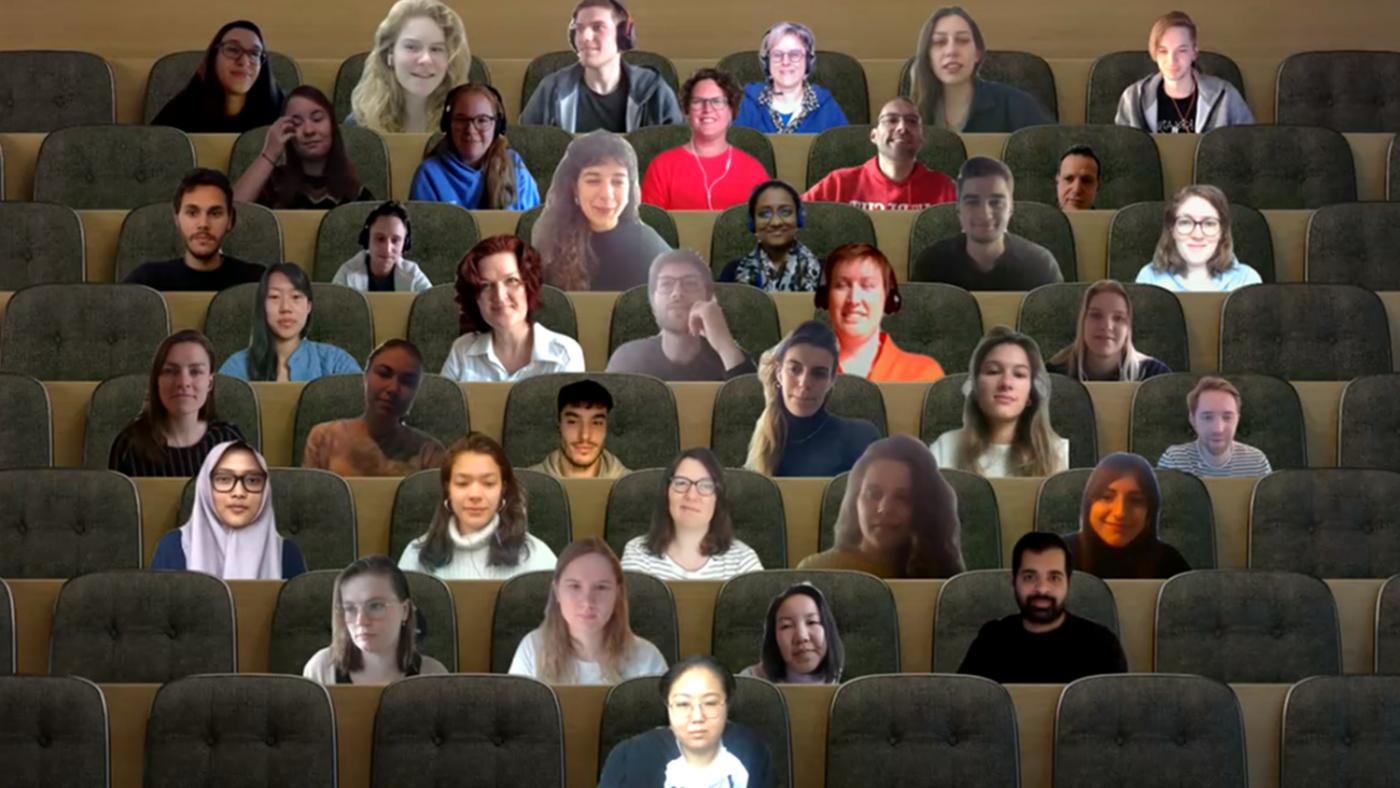Alliance students to look into the municipality's Covid plans

‘How can you enable citizens to carry out activities in the Netherlands, while adhering to the coronavirus regulations?’ asks the municipality of Utrecht. A group of forty nine third-year Bachelor's students and Master's students from the Eindhoven University of Technology, Wageningen University & Research, Utrecht University, and UMC Utrecht will work on this question in the upcoming months. They will receive 3.5 ECTS for the course. Titled Covid Challenge, it is one of the first courses the four institutions are offering jointly as a result of the alliance announced last year.
This morning, the students had their first meeting. After the introductions, they were divided into teams. Each team has an assigned coach and consistents of students from the four institutions and from different study programmes. Their main task in the coming weeks is to collect data. They will be helped by experts such as doctors, social scientists, scientists from the humanities and municipal civil servants. Once it’s clear what each group will be working on, they will have Q&A sessions with the experts, who will help them to dive deeper into the subject matter, explains Sabine Uijl, Project Leader of Educational Innovation Concepts for the alliance: “We’re offering students a lot of space to work with the experts". But that's not all: the students will also have several workshops to acquire skills such as creative thinking. The classes are in English, but most of the activities will take place online because of the pandemic.
At the end of the course, in June, the students will present their work to the municipality. “For this challenge, the municipalities of Wageningen and Eindhoven can join us too, because the ideas the students present for Utrecht can also be relevant for other cities. Since it's a really open question, it’ll be a surprise to see what the students come up with.”
Personal development
There will be no lectures or workgroups. In this form of education, students are responsible for collecting the necessary information themselves. “What they learn from this type of course contributes to their personal development. They are having an opportunity to apply their knowledge to practice, and learn how to work in interdisciplinary groups. Each student approaches the problem from the perspective of their own expertise, so the group members complement each other’s knowledge. Another interesting element is how they’ll pose their questions to the experts. They might get questions they will have to think about for a bit.”
The alliance will be offering four other challenges. The first ones started in February. In this challenge-based learning, students from several disciplines work with each other and with societal partners to tackle real-life issues from corporate life or society. Besides the municipality of Utrecht, clients include the Ministry of Defense, which is looking to develop a new food concept for military staff in training and on missions. In one of the courses that started in February, called University Sustainability Challenge, students must search for solutions related to sustainable development.
Many students were interested in taking these courses, which are only open to third-year Bachelor’s students and Master’s students. “For each challenge, there were more people signing up than we could actually teach. We had to draw names”, says Uijl. For the Utrecht challenge, 70 students signed up, although there was only space for forty nine. “We drew names randomly, only looking at the balance of students per university.”
Innovative education
The goal of the alliance is to strengthen education and research in the four institutions through interdisciplinary approaches for societal issues in energy, sustainability, health, and food. Each institution will spend 1.5 million euros a year on the collaboration for the next four years. Innovation in science and education are key.
The challenges are a part of that project, says Uijl. “We went for this type of education because it’s something all four institutions are familiar with. Because of the alliance, there are more disciplines involved than would happen in a similar challenge if conducted at each separate university.”
Online education is also on the agenda. Because of the coronavirus measures requiring the vast majority of classes to be offered online, universities had to convert their activities to an online format in record speed. Digitising field work is an example of a challenge they faced last year. The four institutions would therefore like to build on the experiences they’ve had in this regard.
There’s also research being done into educational innovations like this one, to learn which methods work best. Therefore, the alliance will also look at graduates: how can they keep developing themselves in interdisciplinary way?
Moreover, the four institutions will expand the number of courses on offer. Starting next academic year, some courses from the universities’ regular programmes will also be open to students from the alliance. “At the moment, we're asking teachers to sign their courses up for this project", explains Uijl.
To join, the courses must be relevant to students from the participating universities both in terms of content and feasibility, she says. To increase the latter, the courses do not rely on specific times or places, so that students don’t have to travel much or at all, and the course will be easier to fit in the schedules of other institutions.
Last but not least, the universities are also working on a joint Master’s programme. But that’s a long-term plan “of which the current collaborations in education, which are now becoming concrete, are the start”, Uijl concludes.